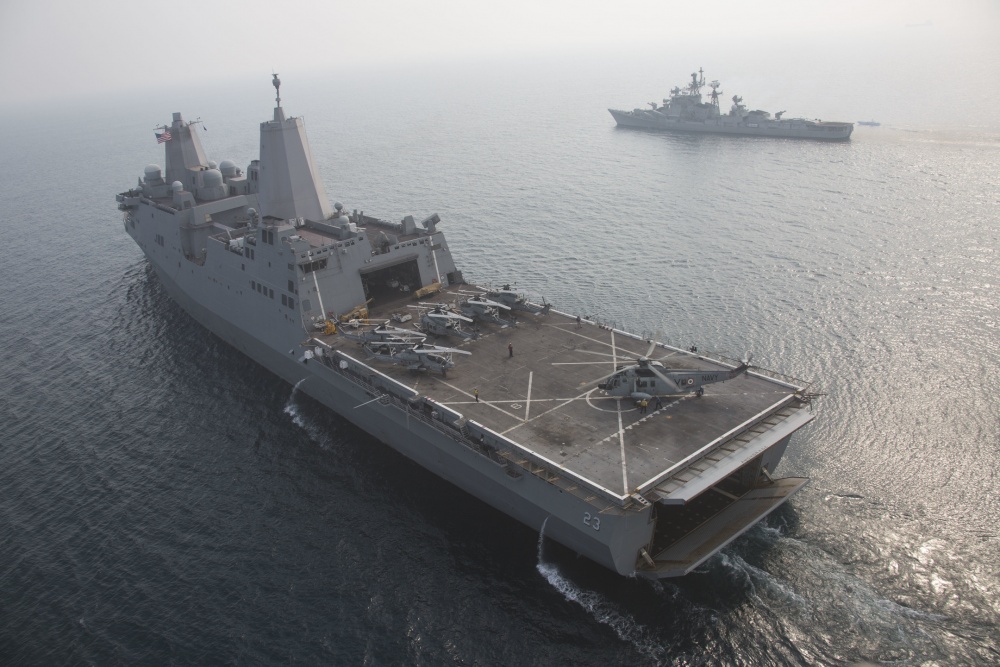
An Indian Navy UH-3H helicopter touched down on San Antonio-class amphibious transport dock USS Anchorage (LPD-23) in late December, marking the first such cross-decking between the two navies and the realization of an agreement made more than a year ago.
Anchorage and embarked Marines from the 13th Marine Expeditionary Unit had just completed a port visit to Visakhapatnam, India, and joint maritime security exercises at sea with Indian guided-missile destroyer INS Rajput (D51). During the exercise, the U.S. and Indian navies conducted the first cross-decking under their Helicopter Operations from Ships other Than Aircraft Carriers (HOSTAC) agreement, according to the U.S. Navy.
“Team, I’m very proud of the great work USS Anchorage (LPD-23) did with our Indian Navy partners, providing both maritime security and humanitarian relief in the U.S. 7th Fleet area of operations. The cooperative deployment offered our two teams the opportunity to operate side by side and on each other’s platforms, further strengthening our ability to operate together at sea,” Chief of Naval Operations Adm. John Richardson wrote on his Facebook page
Along with cross-decking helicopters, Indian landing craft embarked aboard Anchorage, and ship-rider exchanges occurred while underway, according to the Navy.
“This exercise strengthened our combined capability with a partner that is very important to us in the INDO-PACOM region,” Capt. Dennis Jacko, Anchorage’s commanding officer, said in a statement. “The Indian navy is very professional and capable and they did an outstanding job displaying their maritime capabilities.”
The agreement to cross-deck helicopters was formalized more than a year ago, when then-Secretary of Defense James Mattis met with his counterpart, Indian Minister of Defense Nirmala Sitharaman.
“The two emphasized the importance of strengthening maritime security cooperation, and, in support of this objective, decided to implement the program for Helicopter Operations from Ships other Than Aircraft Carriers (HOSTAC),” according to the Pentagon’s media summary of the October 2017 meeting.
In May, Mattis highlighted the importance of the Indian Ocean region and the significance of U.S. partnerships with countries such as India to U.S. military strategy by formally renaming what was U.S. Pacific Command as INDO-PACOM during the organization’s change of command ceremony.
“In recognition of the increasing connectivity between the Indian and Pacific oceans, today we rename the U.S. Pacific Command to U.S. Indo-Pacific Command,” Mattis said during the ceremony. “Over many decades this command has repeatedly adapted to changing circumstances, and today carries that legacy forward as America focuses west.”





